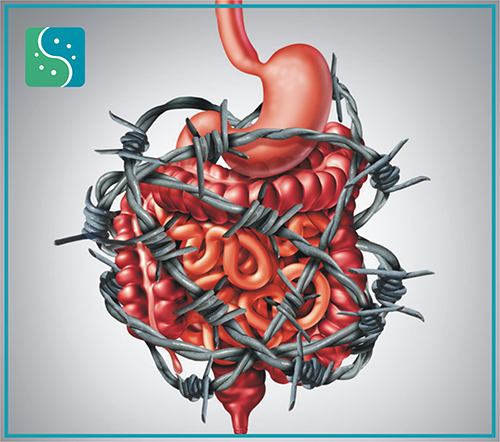IRRITABLE BOWEL SYNDROME (IBS) is a common disorder that affects the stomach and intestines, also called the gastrointestinal tract. Symptoms include cramping, abdominal pain, bloating, gas, and diarrhoea or constipation, or both.
Living with irritable bowel syndrome, or IBS, can be challenging. IBS symptoms, such as stomach pain, diarrhoea, gas and bloating, often interfere with your life. But IBS is manageable. You can improve symptoms through diet and lifestyle changes.
With the help of homoeopathic medicines you can treat your irritable bowel. Since homoeopathic medicine work in holistic way, it also helps in managing stress and anxiety of the patient which is the main aggravating factor of the disease.
To address the physical symptoms, IBS treatment in homoeopathy works on abnormalities in the nervous system; it regulates the immune system and provides relief from the symptoms at the physical level. It heals abdominal pains and bowel problems accompanied by tension and astringent sensations.
The link between stress and IBS goes both ways. Stress and anxiety sometimes trigger over- activity of the gut which causes IBS symptoms. Conversely irregular bowel movements may also affects the emotional state of a person and he/ she might feel anxious all depressed. Homoeopathic treatment helps to manage stress and anxiety by reducing the cortisol level (stress hormone), this helps to relax the muscle contraction of the large intestine and eases the digestive functions.
Researchers categorize IBS based on the type of bowel movement problems you have. Often, people with IBS have normal bowel movements some days and abnormal ones on other days. The type of IBS you have depends on the abnormal bowel movements you experience.

The condition most often occurs in people in their late teens to early 40s. Women can be twice as likely as men to get IBS. IBS may happen to multiple family members. You may be at higher risk if you have:
If you have IBS, you may have noticed that certain things trigger symptoms. Common triggers include some foods and medication. Emotional stress can also be a trigger. Some researchers suggest that IBS is the gut’s response to life’s stressors.
CAUSES OF IBS Exact cause of IBS is unknown. Combination of factors can lead to IBS, including:
SYMPTOMS OF IRRITABLE BOWEL SYNDROME include.
Women with IBS may find that symptoms flare up during their periods.
The first step in diagnosing IBS is a medical history and a physical exam.
Depending on your symptoms, you may need other tests to confirm a diagnosis. Blood tests, stool samples and X-rays can help rule out other diseases that mimic IBS.
No specific therapy works for everyone, but most people with IBS can find a treatment that works for them. Typical treatment options include dietary and lifestyle changes. A dietitian can help you create a diet that fits your life.
Many people find that with these changes, symptoms improve.
Dietary changes
Activity changes
No, IBS doesn’t put you at higher risk of developing conditions such as colitis, Crohn’s disease or colon cancer.
IBS is not life-threatening. Living with this condition can be challenging because it can come and go throughout your life. But there are many ways to manage and live with IBS.